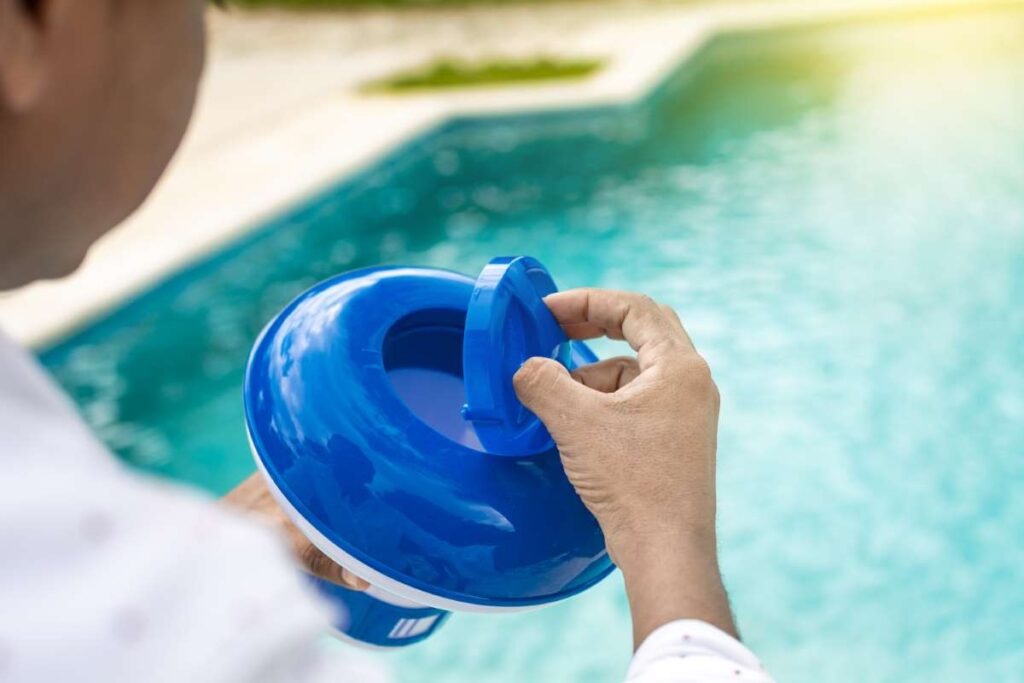Discover the importance of training when it comes to managing pool routes and becoming an expert in pool maintenance. Learn how effective training can ensure success in the pool service industry.
Understanding Pool Filters: Training Insights
Proper training is essential for success in the pool service industry, particularly when it comes to understanding pool filters and maintenance. This post dives into the intricacies of pool filters, offering valuable insights into their functions, types, maintenance best practices, and how to incorporate these into your pool service business. Whether you are new to the industry or looking to enhance your expertise, this comprehensive guide will equip you with the knowledge you need to thrive.
Introduction
The pool maintenance industry offers a great business opportunity for entrepreneurs, especially when you have the right knowledge and training. One of the most critical components of pool maintenance is understanding the various types of pool filters and how to maintain them properly. Pool filters are essential for ensuring the cleanliness and safety of pool water, and their upkeep is an integral part of a pool service provider’s job.
In this article, we’ll explore the role of pool filters, different types of filters used in pools, and the importance of thorough training for pool service professionals. If you’re considering entering the pool service industry or already in the business, learning the ins and outs of pool filters will not only help you provide better service but also grow your business successfully.
The Importance of Pool Filters in Pool Maintenance
Pool filters play a crucial role in maintaining water quality by trapping dirt, debris, and other contaminants that enter the pool. Without a functioning filter, pool water can quickly become cloudy and unsafe, making it impossible for swimmers to enjoy a clean and healthy pool. Here are some reasons why pool filters are so important:
- Clean Water: Filters help remove dirt, leaves, and other debris from the water, ensuring it stays clear.
- Health and Safety: A well-maintained filter keeps harmful bacteria and other contaminants in check, preventing waterborne illnesses.
- Efficiency: Proper filtration ensures that your pool's cleaning system runs efficiently, reducing the need for excessive chemical use and preventing damage to the pool equipment.
By learning how pool filters work, pool service professionals can provide better maintenance, which results in happier customers and longer-lasting pool systems.
Types of Pool Filters: A Deep Dive into Options
Understanding the different types of pool filters is essential for providing expert pool service. There are three primary types of pool filters, each with its unique features, advantages, and maintenance requirements. Here’s a detailed look at each type:
1. Sand Filters
Sand filters are one of the most commonly used types of pool filters. They consist of a large tank filled with special filter sand, which traps dirt and debris as water passes through it. These filters are relatively easy to maintain and are great for pools with moderate debris levels.
Pros:
- Low maintenance
- Affordable
- Effective at removing larger particles
Cons:
- Less efficient at filtering fine particles
- Require backwashing periodically to remove trapped debris
2. Cartridge Filters
Cartridge filters use a pleated cartridge to trap dirt and debris from the water. They are highly effective at filtering out smaller particles compared to sand filters, making them a popular choice for pools with more stringent cleanliness requirements.
Pros:
- Higher filtration efficiency
- Low maintenance (no backwashing required)
- Easier to install and replace
Cons:
- Cartridges need to be replaced regularly
- May be more expensive than sand filters
3. DE (Diatomaceous Earth) Filters
DE filters provide the highest level of filtration, making them ideal for pools that require the cleanest water possible. These filters use diatomaceous earth, a natural substance made from the fossilized remains of tiny aquatic organisms, to filter out particles as small as 2 microns.
Pros:
- Exceptional filtration quality
- Ideal for pools with fine debris and algae
Cons:
- More expensive to install and maintain
- Require regular cleaning and refilling with DE powder
Each of these filter types has its own set of benefits and challenges. Pool service professionals must be trained to identify the appropriate filter for each pool, based on customer needs and the specific maintenance requirements of the system.
Training for Pool Service Professionals: Why It’s Essential
Training is crucial in ensuring that pool service professionals understand the intricacies of pool filtration and can provide excellent service. At Superior Pool Routes, we offer comprehensive training programs for aspiring entrepreneurs and existing pool service professionals looking to expand their expertise. Here’s why training is so important:
1. Expert Knowledge of Pool Filters
A solid understanding of pool filters enables professionals to assess pool systems accurately, troubleshoot issues, and recommend the best maintenance practices. Whether it’s cleaning the filter or replacing a worn-out cartridge, knowing how to perform these tasks efficiently ensures that pools remain in top condition.
2. Efficient Pool Maintenance
Pool service professionals with proper training can streamline their workflows, reducing the time it takes to maintain pools. For example, understanding the optimal frequency for backwashing or replacing a filter cartridge helps technicians avoid unnecessary work and focus on what matters most.
3. Customer Satisfaction
By providing reliable and knowledgeable service, trained pool professionals build trust with customers, leading to greater customer retention and more referrals. The ability to educate clients on filter maintenance, for example, allows pool service professionals to foster long-term relationships and improve customer satisfaction.
Pool Routes Training plays an essential role in ensuring that professionals understand all aspects of pool maintenance, including filters, water chemistry, cleaning procedures, and more.
Pool Filter Maintenance: Best Practices for Long-Lasting Filters
Regular maintenance is key to ensuring that pool filters operate efficiently and have a long lifespan. Here are some best practices for maintaining pool filters:
1. Backwashing (For Sand and DE Filters)
Backwashing is an essential part of maintaining sand and DE filters. It involves reversing the flow of water through the filter to flush out the accumulated dirt and debris. Pool service professionals should backwash the filter as needed, depending on the amount of debris in the pool.
2. Cleaning Cartridges (For Cartridge Filters)
Cartridge filters require less maintenance than sand and DE filters, but they still need to be cleaned regularly. Pool professionals should remove and rinse the cartridges to remove any dirt or debris. Depending on the pool’s usage, cartridges may need to be replaced every 1-2 years.
3. Replacing the Filter Media
For both sand and DE filters, the filter media needs to be replaced periodically. Over time, the media can become less effective at trapping debris. Pool professionals should ensure that the filter media is replaced at the appropriate intervals to maintain optimal filtration.
By following these best practices, pool service providers can ensure their clients’ pools are always clean and safe, while also minimizing the need for costly repairs or replacements.
Training Options for Pool Service Professionals
For those interested in starting or expanding their pool service business, training is a crucial step. At Superior Pool Routes, we offer a variety of training options to ensure that pool service professionals are well-prepared to handle all aspects of pool maintenance, including filter care.
- Pool-School: Our exclusive video platform provides in-depth lessons on pool systems, water chemistry, filters, and cleaning processes. It also includes quizzes to help reinforce learning.
- In-Field Training: Available in Fort Lauderdale, FL, and Dallas, TX, our in-field training offers hands-on experience in real-world settings.
- Virtual Training: For those who prefer remote learning, we offer virtual training via video calls to accommodate different schedules and locations.
Our comprehensive training ensures that you’ll have the knowledge and skills necessary to excel in the pool service industry, no matter where you’re located.
Conclusion
Understanding pool filters is a vital component of running a successful pool service business. From recognizing the importance of filters in maintaining clean, safe pool water to learning how to maintain and replace filters, knowledge in this area will allow professionals to offer top-notch service.
With the proper training, you’ll not only become proficient in handling pool filters but also gain the expertise needed to run your business efficiently. If you’re interested in starting a pool service business, check out our Pool Routes For Sale to find the perfect route to fit your goals.
Proper training in pool filter maintenance is a key factor in ensuring long-term success, and at Superior Pool Routes, we’re here to help you every step of the way!



